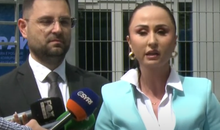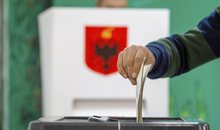
 Flash News
Flash News
Electoral crime in Belsh, Elbasan Prosecutor's Office arrests 4 IMT employees after PD report
Incident at Giro d'Italia, citizen hit by cyclist
DP against SP's request to postpone voting hours in Vlora: Abuse of the electoral process
Wanted in Albania for murder, Ardian Ahmetaj, friend of Laert Haxhiu, arrested in Greece
The second day of the "Giro d'Italia 2025", the roads that will be blocked in Tirana
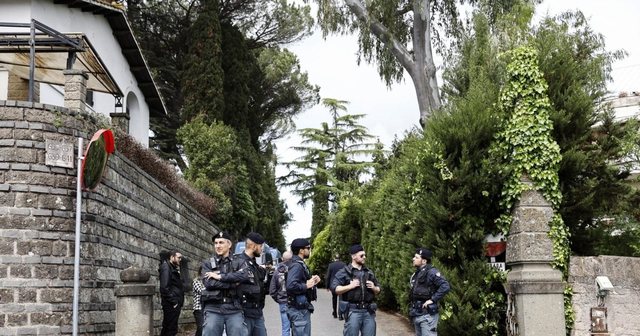
Iranian and American negotiators have agreed to hold a third round of talks on Iran's nuclear ambitions, a positive signal amid mixed messages from the White House about possible military action and new demands for Tehran.
The April 19 meeting took place a week after the two sides met in Oman, which was the first high-level meeting held in many years between Washington and Tehran.
White House special envoy Steve Witkoff and Iranian Foreign Minister Abbas Araqchi led their delegations to the talks in Rome.
The US has not yet commented on the outcome of the talks in Rome.
But the Iranian Foreign Minister said the two sides agreed to meet again on April 26 in Oman.
"I believe that technical negotiations at the expert level will start in Oman on April 23, and next Saturday we will meet in Oman to review the results of the experts' work and see how close we are to an agreement in principle," Araqchi said.
Meanwhile, US Secretary of State Marco Rubio said he hopes talks with Iran will be "fruitful."
"We would all prefer a peaceful and sustainable solution," he said after the meetings in Paris.
But, he added, "it has to be something that not only prevents Iran from having nuclear weapons now, but also in the future."
Rubio said he hopes the talks with Iran will be "fruitful."
The United States and other Western countries have long accused Iran of trying to build nuclear weapons. Tehran has consistently denied the charges, insisting its efforts are for civilian purposes, such as generating electricity.
After returning to the White House in January, President Donald Trump, who had withdrawn from the 2015 nuclear deal, resumed the "maximum pressure" campaign of sanctions on Iran.
Last month, he sent a letter to Iran's supreme leader calling for the resumption of talks, while warning of military action if diplomacy fails.
Over the past week, Trump and other White House officials have sent mixed and sometimes contradictory messages about the U.S. approach to the talks. The White House has ordered the deployment of long-range bombers to the region, as well as an aircraft carrier.
“I’m in no rush” to use the military option, Trump told reporters on April 17. “I think Iran wants to talk.”
On April 18, he said: "I am for stopping Iran, quite simply, from having a nuclear weapon. They cannot have a nuclear weapon. I want Iran to be wonderful, prosperous and fantastic."
In an April 14 interview with Fox News, Steve Witkoff said the US was open to a limited nuclear program for Iran.
But he later retracted that statement in a social media post, suggesting that the entire program should be scrapped.
Israel's role in the debate over Iran's nuclear ambitions is also crucial. Israeli officials have vowed to prevent Tehran from obtaining nuclear weapons, and according to some media outlets, have not ruled out the possibility of an attack on Iranian nuclear facilities in the coming months.
Meanwhile, Trump reportedly told Israeli Prime Minister Benjamin Netanyahu that Washington does not support such a move.
Former officials and experts have long said that Israel would need significant military support - and weapons - from the US to destroy Iran's nuclear facilities and stockpiles, some of which are located in underground buildings.
Latest news

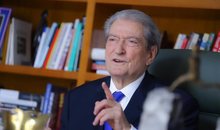
Berisha denounces vote buying by Vullnet Sinaj: I condemn his ugly crime
2025-05-10 20:10:18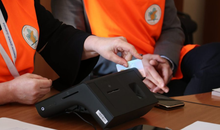
7 polling centers where electronic voter identification will not be applied
2025-05-10 19:44:49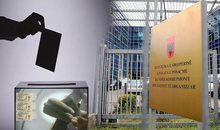
Electoral crimes, many complaints, few punishments!
2025-05-10 19:33:39

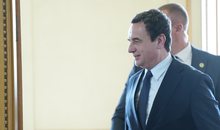

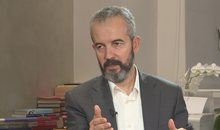

Incident at Giro d'Italia, citizen hit by cyclist
2025-05-10 17:38:36
A parking lot the size of a house, the "golden" business in Tirana
2025-05-10 17:18:41

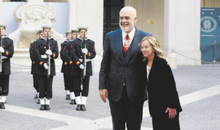

Berisha thanks supporters: Today we are more united than ever
2025-05-10 15:55:59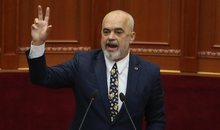
Fourth term: A luxury Albania cannot afford
2025-05-10 15:36:30
How to vote in tomorrow's parliamentary elections?
2025-05-10 15:24:12
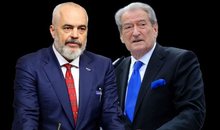
Rama or Berisha, who won the audience battle on the two big screens?
2025-05-10 14:51:46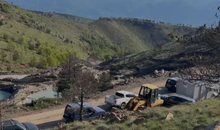
Tragedy in Gramsh/ Landslide crushes two workers, one of them dies
2025-05-10 14:28:15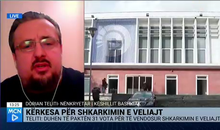
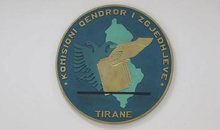

BIRN: Facebook profiles from Vietnam flooded Rama's interview on the show
2025-05-10 13:30:17
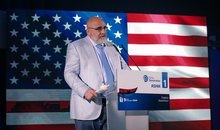
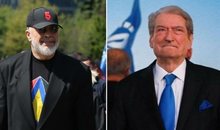
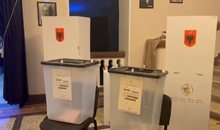

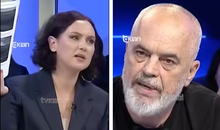
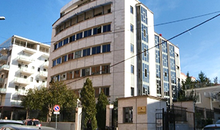


Foreign exchange, May 10, 2025
2025-05-10 10:16:12
How much does hourly parking cost in the capital?
2025-05-10 09:59:58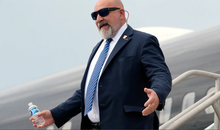
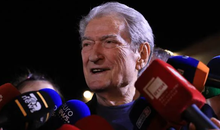
The US can no longer ignore Albania
2025-05-10 09:17:50


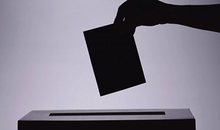

What do the stars predict for you today?
2025-05-10 08:18:36
Morning Post/ In 2 lines: What mattered yesterday in Albania
2025-05-10 07:59:03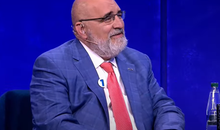

Closing of the rallies/ Who got more clicks, Rama or Berisha?
2025-05-09 22:44:02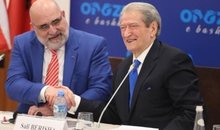
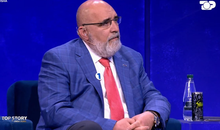
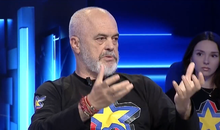
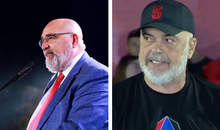
Rama opens up about LaCivita: It's the only 'same wheel' in that pile of waste
2025-05-09 21:40:54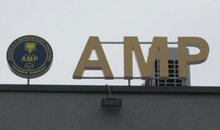




Berisha thanks LaCivita: You insulted Rama by hitting the table with your fists
2025-05-09 20:51:13
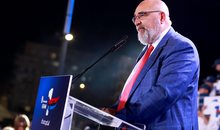


PS ends campaign, Iris Luarasi: Small parties are like men who rape women
2025-05-09 20:12:35
Accident in Pogradec, a 73-year-old woman is injured
2025-05-09 20:05:29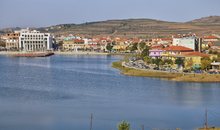

May 11 elections/ ID card distribution offices will remain open on Saturday
2025-05-09 19:30:22
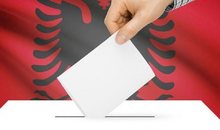
DW: Parliamentary elections a decisive test for the EU
2025-05-09 18:53:03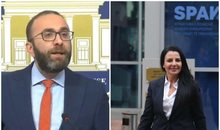

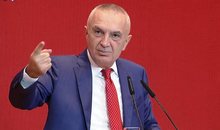

Euro deposits fell by 0.4% during the first quarter of the year
2025-05-09 18:17:43

Eurovision 2025: The way qualifying countries are announced changes
2025-05-09 17:54:53
Kosovo/ Famous stylist stabs girlfriend in Pristina, then kills himself
2025-05-09 17:43:40

Prokuroria kërkon tre burgime të përjetshëm për Dan Hutrën
2025-05-09 17:23:51
Election materials arrive in Durrës under strict security measures
2025-05-09 17:11:46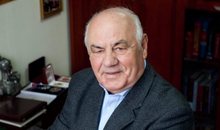
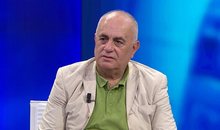
Who will I vote for?
2025-05-09 16:48:25
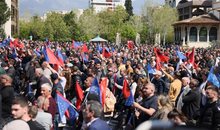
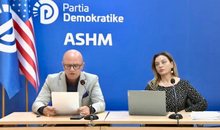
DP: Wanted persons are looking to collect votes for the Socialist Party
2025-05-09 16:02:06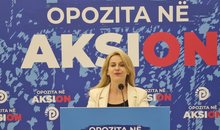

Artan Hoxha: One person was taken hostage for political conflict! SPAK failed
2025-05-09 15:30:17



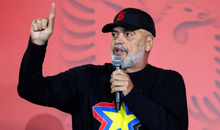
Is Rama ready to become the next Hoxha?
2025-05-09 13:50:12
Election materials arrive in Kukës, Has and Tropoja
2025-05-09 13:30:20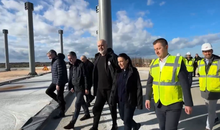
Electoral flight to Vlora
2025-05-09 13:18:04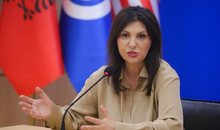

IdentiTek offices open on Saturdays
2025-05-09 13:03:13
Will artificial intelligence help us talk to animals?
2025-05-09 12:55:58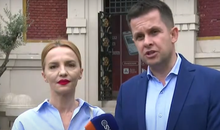



Rama's fourth act: between Brussels and the Mafia
2025-05-09 12:12:47
The body of a 29-year-old man in Klos is found after 6 days
2025-05-09 12:01:27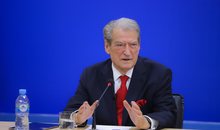
Berisha: After May 12, this opposition will become the majority in Albania
2025-05-09 11:52:37
Leo XIV celebrates his first Mass as Pope
2025-05-09 11:42:34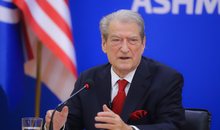
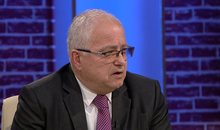
Spaho denounces: SP candidate in Pogradec gives 100 thousand lek for the vote
2025-05-09 11:27:26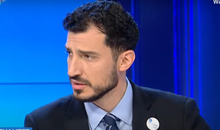
Mustafaj: Proud of the worthy campaign of the DP
2025-05-09 11:22:20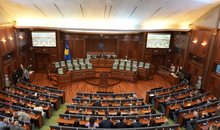
Constitution fails again, Kosovo still without a new Assembly
2025-05-09 11:06:55